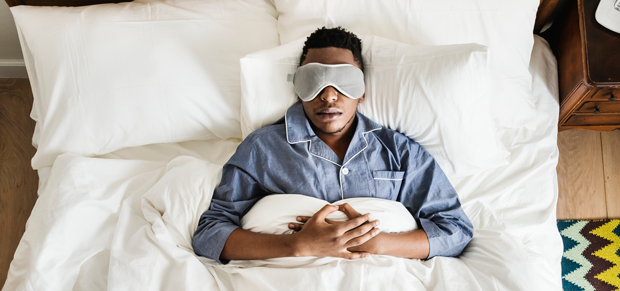Before the pandemic, life moved fast. Globalism and its insatiable priorities around speed, business, travel, earnings, and returns, fueled our thirst for more and more. But when life was locked down last year and time at home became both a necessity and a requirement, slow activities reminded us of the hidden luxuries in life we were missing out on. Like sleep.
Sleep is something that there never seems to be enough of. It is fascinating and elusive, mind-bending, and deeply connected to our wellness. Sleep is a philosophical quest for exploring how to fine tune our daily habits to sponge even more benefits from the time between when we go to bed and wake up.

It wasn’t too long ago that we revered stress as a sign of success. With more emphasis on work-life balance and immunity-boosting habits, many of us are taking a hard look at how we can adjust our schedule to squeeze in more sleep time. Dubbed “sleep care,” there’s plenty of science to back it up, no matter what stage of life you are at.
Understanding Sleep Care and Its Significance
“Sleep services all aspects of our body in one way or another: molecular, energy balance, as well as intellectual function, alertness, and mood,” says Dr. Merrill Mitler, a sleep expert and neuroscientist at NIH.
Tech wearable trends show that more consumers are interested in accessing their sleep data with an expected market bump by at least 15% in the next four years. Bands like Apple and Whoop are monitoring sleep quality details from the percentage of time spent in deep sleep, REM cycles, light sleep, sleep latency, and the number of disturbances, which all contribute to an overall sleep performance score each night. More time for naps and sleeping “clean” with fewer distractions, light, noise, and blue light devices are the most talked-about trends in 2021 health news.
Restful sleep benefits our entire physiology, leading to better moods, metabolic functions, cognitive ability, and immunity. Making more time for rest pays dividends for the “work” -side of the equation too — more sleep equals more productive days and a higher level of reasoning, problem-solving, and attention-to-detail.
Sleep consists of the following stages: Light, Deep Sleep aka Slow Wave (SWS), REM Sleep, and Wake (disturbances). During sleep, our body enters a regenerative phase, primarily through deep sleep. In the REM stage, our brains categorize information storing short-term memories into a long-term memory bank.
The Future
While so much of sleep, its benefits, and what happens during REM and deep sleep has yet to be discovered, exciting new research released in February reports real-time dialogue between experimenters and dreamers during REM sleep. Findings included performing analysis of novel information, maintaining information in working memory, computing simple answers, and expressing volitional replies. Why is this important? Because dream state and sleep is still a modern mystery to us and being able to frequent lucid dreaming (awareness of the fact of the dream) means substantive new discoveries in a relatively unexplored communication channel, enabling “a variety of practical applications and a new strategy for the empirical exploration of dreams.”
With more time and attention directed toward achieving restful sleep and exploring dreams, a more holistic and expansive understanding of the other side of waking becomes part of our human awareness. Being a human in 2021 means pursuing consciousness and wellbeing in all its forms and sleep offers another avenue towards transformation and mindful activities. Sleep is a critical part of our self-care and with more innovation and emerging science, we have the tools to dive deeper into rest and wellbeing.







